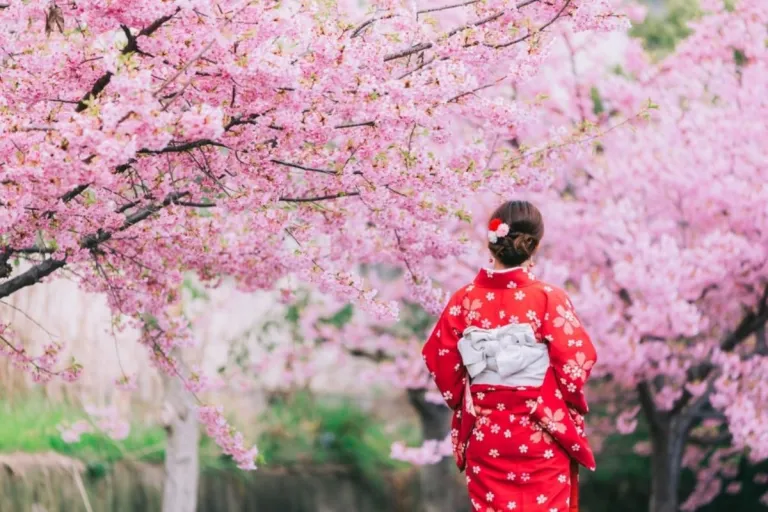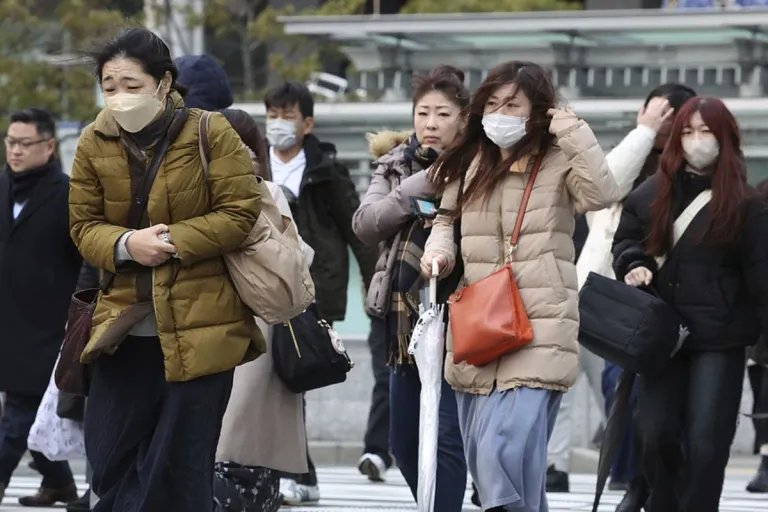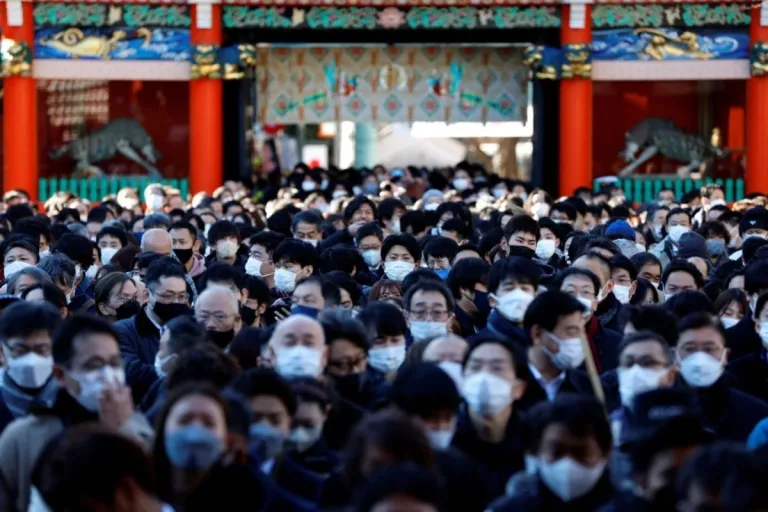Not just Boracay...
Your Guide to Staying Healthy in Japan During Cherry Blossom Season

Cherry blossom season in Japan is a dream come true for many travellers. The pink and white blooms, lively festivals, and stunning scenery make it an unforgettable experience. However, with the current flu outbreak in Japan, staying healthy should be a top priority—especially during this peak travel season. This guide offers helpful tips for preparing, staying healthy, and what to do if someone falls sick while in Japan, with special considerations for Muslim travellers.
Also read: Where to Catch Japan's Early Winter Cherry Blossoms Before April
Before travelling: Precautions to take
 Image credit: CGTN | Official Website
Image credit: CGTN | Official Website
For those heading to Japan (or any other destination) during cherry blossom season, preparation is key. First and foremost, travellers should consider getting a flu shot if available. While a vaccine won’t guarantee full immunity, it can reduce the risk of severe illness, offering a level of protection before the trip. In addition, it’s important to pack a health kit with essential items such as flu medications, fever reducers, vitamins, hand sanitiser, and disposable masks. Oseltamivir (Tamiflu) is often recommended for flu treatment, but consulting with a doctor for personalised medication advice is essential.
Travellers should also prioritise staying hydrated and boosting immunity in the days leading up to their trip. Increasing vitamin C intake, drinking plenty of water, and ensuring enough rest will help support the body’s defences. Checking travel insurance coverage is another crucial step. It’s important to confirm that the insurance includes medical emergencies, especially for treatment abroad. Some plans even offer telemedicine services, which can be particularly useful while travelling.
For Muslim travellers, planning ahead to identify halal food options or vegetarian restaurants is highly recommended. This ensures access to nourishing meals, especially in the event of illness, and allows for peace of mind when dietary needs arise while abroad.
What to do if feeling sick in Japan?
 Image credit: StockPlanets via Canva Pro
Image credit: StockPlanets via Canva Pro
If flu symptoms arise while in Japan, there’s no need to panic. Japan has a high standard of healthcare, and visitors can easily access medical assistance. Many major cities have English-speaking doctors, and visitors can either go to a local clinic or a hospital if symptoms worsen. There are apps, such as ‘Japan Hospital Guide,’ that can help locate nearby medical facilities. For those needing over-the-counter flu medications, Japan’s pharmacies, called Kusuriya, stock a wide range of remedies. If prescription medication is needed, travellers should bring a translation of their symptoms or use Google Translate to communicate with the pharmacist.
It’s also important to inform the accommodation of any health concerns. Many hotels in Japan offer assistance, including arranging doctor visits or providing food delivery to the room. In the case of illness, it’s best to stay indoors, rest, and hydrate. Convenience stores in Japan often offer halal and vegetarian-friendly soups and drinks, which can be comforting and nutritious during recovery. Muslim travellers can also find mosques or prayer rooms in Japan, which offer a quiet, clean space to rest and recover in peace.
Staying safe while enjoying cherry blossom season
 Image credit: Reuters | Official Website
Image credit: Reuters | Official Website
For those feeling healthy and eager to explore, there are still precautions to keep in mind to ensure continued well-being. Wearing a mask is a common practice in Japan, particularly during flu season. Whether navigating crowded trains or exploring the bustling streets of Tokyo, wearing a mask can help minimise exposure to germs and reduce the chances of getting sick.
Another way to stay safe is by avoiding peak hours and overly crowded spaces. Visiting popular cherry blossom spots in the early morning or on weekdays allows for a more peaceful experience without the large crowds that tend to gather during the weekends. Carrying hand sanitiser is also essential, as hand hygiene plays a crucial role in preventing the spread of germs. Many public restrooms in Japan do not provide soap, so it’s wise to have a personal supply of sanitiser for frequent use after touching public surfaces.
In addition, consuming immune-boosting foods is another way to stay strong. Japan offers a variety of nutritious options, such as miso soup, fresh fruits, and green tea. For Muslim travellers, halal-certified restaurants or vegetarian options can provide meals that meet dietary needs while still offering the nourishment and comfort required during the trip.
Enjoy Japan, but stay cautious
 Image credit: kitchakron via Canva Pro
Image credit: kitchakron via Canva Pro
Also read: Japan Heaviest Snowstorm Alert: Travel Disruptions, Safety Tips & Muslim-Friendly Guide
Cherry blossom season in Japan is truly magical, and with the right precautions, travellers can enjoy it while staying healthy. Whether travelling solo, with family or as a Muslim traveller looking for halal-friendly options, a little planning can go a long way. By staying safe, travelling smart, and taking the necessary precautions, travellers can fully experience the breathtaking Sakura season in Japan while keeping their health in check.
Published at
About Author
Aimi Zulkiflee
Subscribe our Newsletter
Get our weekly tips and travel news!
Recommended Articles
10 Best Halal-Friendly Destinations in The Philippines for Muslim Travellers 10 Best Places for Muslim Travellers to See Tulip Festivals in 2025 Fun Fact: Tulips didn’t actually come from the Netherlands but Türkiye!
10 Halal Anime Food Guide for Muslim Travellers in Japan Muslim-friendly versions of popular anime dishes across Japan!
Top 10 Popular Muslim-Friendly Destinations to Visit in 2025 Our schedules are packed, buddies!
10 Hidden Gems in Osaka Perfect For Muslim Travellers Food, culture, neon lights, history, friendly locals — OSAKA!
Latest Articles
Why Is The Floor of Masjid al-Haram Always Cool – Even in Scorching Heat? Did you know, Thassos marble is so white that it reflects sunlight easily!
The Ultimate Guide For Muslim Travellers to Great Wisteria Festival in Japan You can spot 160-year-old wisteria tree that covers 1,000 sq meters!
Mona Lisa Relocation 2031: What Muslim Travellers Should Know About the Louvre Makeover You can catch Mona Lisa’s smile in under 1 minute!
Penang Airport Launches MyBorderPass: Faster Immigration For 63 Countries Faster customs for 63 countries at Penang Airport!
Travel Alert: Beijing and Northern China Hit by Extreme Winds — Safety Tips Inside China warns people under 50kg to stay indoors amid strong wind alert!

